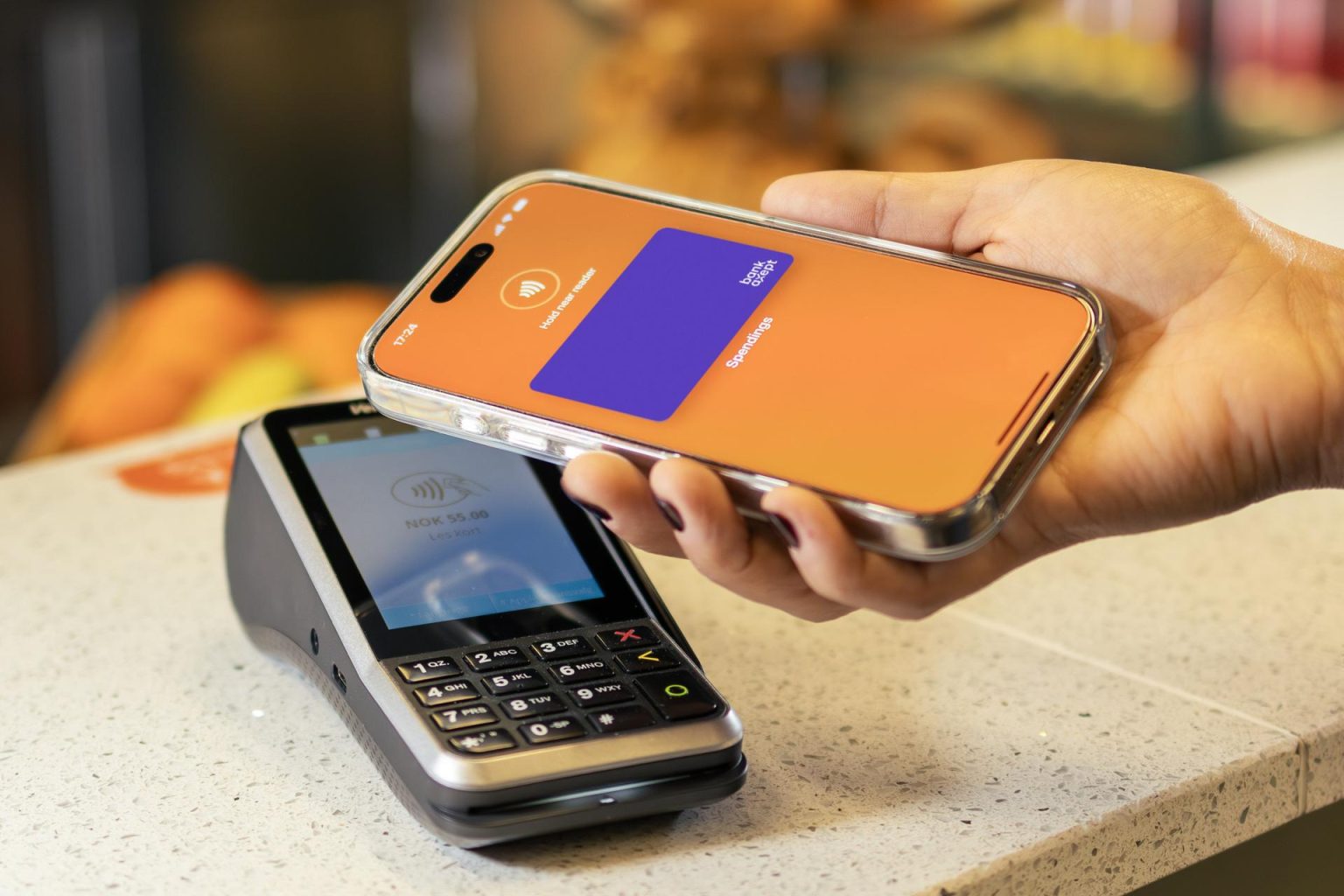Mobile payments service Vipps Mobile Pay has launched an alternative payment technology to Apple Pay on iPhone in a world-first move.
Currently available in Norway, ‘tap with Vipp’ allows users to tap their iPhone and Android phones to complete transactions by holding a device close to a payments terminal.
The launch makes Vipps MobilePay the first direct competitor to Apple Pay on iPhone.
The move follows an agreement between the EU and Apple, finalised in July, which now allows other mobile wallets like Vipps to access the iPhone.
The new service gives users access to a range of payment services, including sending money, paying in-store, online payments and money requests. Users can also set Vipps as their default payment app on iPhone and Android and complete payments by unlocking the device.
Customers of SpareBank 1, DNB, and over 40 other local banks will be the first to use the new service, with Vipps planning to expand to further banks in the future.
The app is available on all card terminals that accept cards from BankAxept, the national payment system in Norway.
Vipps MobilePay said the service will soon be available for Visa and Mastercard as the firm looks to expand the service’s geographical reach.
The firm added it plans to launch the ‘tap and go’ solution in Denmark, Finland and Sweden in 2025.
Rune Garborg, chief executive of Vipps MobilePay, said:"We have fought for years to be able to compete on equal footing with Apple, and it feels almost surreal to finally be able to launch our very own solution. This will now be a very exciting battle between the world's biggest brand and Vipps."
Garborg went on to say that being the first in the world to offer an alternative to Apple Pay on iPhone represents a “huge achievement” as it enables competition with bigger players.
“I’m so proud of my colleagues who have worked hard to achieve this, and thankful for excellent collaboration partners in BankAxept and Thales," continued the chief executive.
Latest News
-
Gemini to cut quarter of workforce and exit UK, EU and Australia as crypto slump forces retrenchment
-
Bank ABC’s mobile-only ila bank migrates to core banking platform
-
Visa launches platform to accelerate small business growth in US
-
NatWest to expand Accelerator programme to 50,000 members in 2026
-
BBVA joins European stablecoin coalition
-
eToro partners with Amundi to launch equity portfolio with exposure to ‘megatrends’
Creating value together: Strategic partnerships in the age of GCCs
As Global Capability Centres reshape the financial services landscape, one question stands out: how do leading banks balance in-house innovation with strategic partnerships to drive real transformation?
Data trust in the AI era: Building customer confidence through responsible banking
In the second episode of FStech’s three-part video podcast series sponsored by HCLTech, Sudip Lahiri, Executive Vice President & Head of Financial Services for Europe & UKI at HCLTech examines the critical relationship between data trust, transparency, and responsible AI implementation in financial services.
Banking's GenAI evolution: Beyond the hype, building the future
In the first episode of a three-part video podcast series sponsored by HCLTech, Sudip Lahiri, Executive Vice President & Head of Financial Services for Europe & UKI at HCLTech explores how financial institutions can navigate the transformative potential of Generative AI while building lasting foundations for innovation.
Beyond compliance: Building unshakeable operational resilience in financial services
In today's rapidly evolving financial landscape, operational resilience has become a critical focus for institutions worldwide. As regulatory requirements grow more complex and cyber threats, particularly ransomware, become increasingly sophisticated, financial services providers must adapt and strengthen their defences. The intersection of compliance, technology, and security presents both challenges and opportunities.
© 2019 Perspective Publishing Privacy & Cookies














Recent Stories